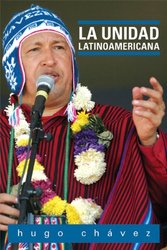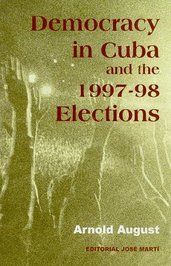Drawing upon the previous three posts (“Neocolonialism in Africa and Asia” 9/11/2013; “Neocolonialism in Cuba and Latin America” 9/12/2013; “The Neocolonial World System” 9/13/2013), let us summarize the general characteristics of neo-colonialism.
The general characteristics of neocolonialism are: a core-peripheral economic relation that in essence is a continuation of the economic relation imposed by conquest and force during the colonial era; rule by large and concentrated transnational corporations, transnational banks, and international financial agencies, which control the economic and financial institutions of the neocolony; rule through a figurehead bourgeoisie that inserts itself into the structures of economic penetration and exploitation, conforming to the interests of international capital and benefitting itself at the expense of the majority of people in the nation; social control by the military of the neocolonial state, with necessary training and arms coming from the United States or other core states; ideological penetration to justify the existing political-economic system; and the use of military force directly by the United States and/or other core states when popular resistance provokes political and social instability. When it functions, the neocolonial system gives the appearance of independence to the neocolony, and the function of ideology is to reinforce this image in order to legitimate the world-system.
Since the world-system is not organized to protect the sovereignty of the nations nor the human needs of their peoples, neocolonies everywhere are characterized by popular anti-neocolonial movements, and they invariably have periods of instability. Such instability is a symptom of a fundamental fact: the neocolonial world-system contradicts human rights and democratic values, and for this reason, among others, it is not sustainable in the long run.
In the 1950s, 1960s and 1970s, the world-system encountered much ideological and popular resistance in all regions of the world. However, after 1980, with the imposition of the neoliberal project, the core powers were able to move toward the consolidation of the global neocolonial system, taking significant steps on economic, financial, and ideological fronts. But the system was never fully consolidated, and since 1995, there has occurred a renewal of the popular movements in the Third World, weakening the political and ideological structures of neocolonial domination and establishing an economic, financial, and social alternative. This formulation of a Third World alternative in theory and practice is occurring at the present time, and it is occurring precisely at a moment when the world-system confronts a profound and general crisis, as a consequence of its internal contradictions and its incompatibility with the ecological needs of the earth.
Thus there is at the present time a fundamental political conflict between the global North and the global South. The global powers seek to preserve the neocolonial structures that maintain for the present an unsustainable world-system, while the peoples of the Third World are developing a global anti-neocolonial revolutionary movement. These issues will be discussed further in future posts.
Bibliography
Arboleya, Jesús. 2008. La Revolución del Otro Mundo. La Habana: Editorial de Ciencias Sociales.
Key words: Third World, revolution, colonialism, neocolonialism, imperialism, democracy, national liberation, sovereignty, self-determination, socialism, Marxism, Leninism, Cuba, Latin America, world-system, world-economy, development, underdevelopment, colonial, neocolonial
The general characteristics of neocolonialism are: a core-peripheral economic relation that in essence is a continuation of the economic relation imposed by conquest and force during the colonial era; rule by large and concentrated transnational corporations, transnational banks, and international financial agencies, which control the economic and financial institutions of the neocolony; rule through a figurehead bourgeoisie that inserts itself into the structures of economic penetration and exploitation, conforming to the interests of international capital and benefitting itself at the expense of the majority of people in the nation; social control by the military of the neocolonial state, with necessary training and arms coming from the United States or other core states; ideological penetration to justify the existing political-economic system; and the use of military force directly by the United States and/or other core states when popular resistance provokes political and social instability. When it functions, the neocolonial system gives the appearance of independence to the neocolony, and the function of ideology is to reinforce this image in order to legitimate the world-system.
Since the world-system is not organized to protect the sovereignty of the nations nor the human needs of their peoples, neocolonies everywhere are characterized by popular anti-neocolonial movements, and they invariably have periods of instability. Such instability is a symptom of a fundamental fact: the neocolonial world-system contradicts human rights and democratic values, and for this reason, among others, it is not sustainable in the long run.
In the 1950s, 1960s and 1970s, the world-system encountered much ideological and popular resistance in all regions of the world. However, after 1980, with the imposition of the neoliberal project, the core powers were able to move toward the consolidation of the global neocolonial system, taking significant steps on economic, financial, and ideological fronts. But the system was never fully consolidated, and since 1995, there has occurred a renewal of the popular movements in the Third World, weakening the political and ideological structures of neocolonial domination and establishing an economic, financial, and social alternative. This formulation of a Third World alternative in theory and practice is occurring at the present time, and it is occurring precisely at a moment when the world-system confronts a profound and general crisis, as a consequence of its internal contradictions and its incompatibility with the ecological needs of the earth.
Thus there is at the present time a fundamental political conflict between the global North and the global South. The global powers seek to preserve the neocolonial structures that maintain for the present an unsustainable world-system, while the peoples of the Third World are developing a global anti-neocolonial revolutionary movement. These issues will be discussed further in future posts.
Bibliography
Arboleya, Jesús. 2008. La Revolución del Otro Mundo. La Habana: Editorial de Ciencias Sociales.
Key words: Third World, revolution, colonialism, neocolonialism, imperialism, democracy, national liberation, sovereignty, self-determination, socialism, Marxism, Leninism, Cuba, Latin America, world-system, world-economy, development, underdevelopment, colonial, neocolonial








 RSS Feed
RSS Feed











